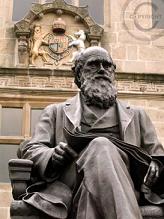LETTERS FROM THE GLOBAL PROVINCE
GP 20 May 2009: Creative Co-Existence: With a Little Help from My Friends
What would you
think if I sang out
of tune,
Would you stand up and walk out on me?
Lend me your ears and I'll sing you a song
And I'll try not to sing out of key
---“With a Little Help from My Friends,” by John Lennon and Paul McCartney
Mike Tyson.
Too swayed by the press, we had always thought of Mike Tyson as just
south of
human, a hulk spun out of futuristic science fiction movies,
relentless,
without nerve endings, a piledriver free of all compunction. We knew
all the
lurid stuff about him–3 years in prison for rape, a boxing suspension
for
chewing off the ear of Evander Holyfield, bankruptcy, silly marriages
to Robin
Givens and Monica Turner, etc.
Now the surprise. Tyson, the documentary movie about his life on and off the ropes, does humanize Tyson and puts a smile on his biography. Indeed, as his moniker claims, he probably was, for a short while, “the Baddest Man on the Planet.” But he’s a miracle, too, having foiled death, which has been looking over his shoulder from the moment he was born, given the cesspool of crime and futile family and sordid acquaintance in which he was immersed. To some extent, he has always known he’s a walking disaster, and that self knowledge somehow redeems him.
What had escaped us was that Cus D’Amato, the
legendary
boxing coach, pulled Tyson’s fat out of the fire. Like
many street-dumb kids from the
Other Partners and Friends. There’s a raft of movies now that teach us that we all get by with the help of our friends, that they save us from ourselves. The Soloist, starring
Jamie Foxx
and Robert
Downey Jr.,
recreates the true story of
Steve Lopez who discovered an abandoned,
mentally troubled
Nathaniel Ayers in
Valentino:
The Last Emperor celebrates the unique business relationship and
love
affair between Valentino Clemente Ludovico Garavani and Giancarlo
Giammetti. Valentino,
a
fabulous haute couture success who retired in 2007, not only created
high
fashion for everybody, but lived the high life—everywhere—in a surfeit
of
houses. At the end he was given
 Charles
and Emma. Around Christmas of last year, a
book for children, Charles
and Emma: The Darwins’ Leap of Faith, hit the bookstands. We think it a tale for every age.
As Bruce Harcott tells us in the New York
Times Book Review (May 10, 2009,
p.13), “Even before he wooed and wed the
charming Emma Wedgwood, Darwin suspected that his growing religious
doubts, fed
by scientific discoveries that seemed to disprove the biblical creation
story,
might dash his chances for matrimonial harmony.” But
his fiancée did not insist on strict
biblical belief, just “an openness to the love of Jesus.”
Thus, they set off on marriage. Their
chances were not good, since they both
came from wretched families, both troubled by psychological mischance
and
untoward behaviors. Yet theirs was a
love match where each was able to live and let live.
More importantly, says Barcott, it was a
marriage “in which the two cultures improved each other for exposure to
the
other.” Indeed, successful partnerships, friendships, and love matches
not only
permit contrasting styles, beliefs, and emotions to cohabit under the
same
roof, but kindle each of the participants, each of whom is stunted in
some way
and needs to grow.
Charles
and Emma. Around Christmas of last year, a
book for children, Charles
and Emma: The Darwins’ Leap of Faith, hit the bookstands. We think it a tale for every age.
As Bruce Harcott tells us in the New York
Times Book Review (May 10, 2009,
p.13), “Even before he wooed and wed the
charming Emma Wedgwood, Darwin suspected that his growing religious
doubts, fed
by scientific discoveries that seemed to disprove the biblical creation
story,
might dash his chances for matrimonial harmony.” But
his fiancée did not insist on strict
biblical belief, just “an openness to the love of Jesus.”
Thus, they set off on marriage. Their
chances were not good, since they both
came from wretched families, both troubled by psychological mischance
and
untoward behaviors. Yet theirs was a
love match where each was able to live and let live.
More importantly, says Barcott, it was a
marriage “in which the two cultures improved each other for exposure to
the
other.” Indeed, successful partnerships, friendships, and love matches
not only
permit contrasting styles, beliefs, and emotions to cohabit under the
same
roof, but kindle each of the participants, each of whom is stunted in
some way
and needs to grow.
The Dialectic.
We learn from Wikipedia
that the “Dialectic is rooted in the
ordinary practice of a dialogue between two people who hold different
ideas and
wish to persuade each other. The presupposition of a dialectical
argument is
that the participants, even if they do not agree, share at least some
meanings
and principles of inference.” Various forms of such discourse invest
several
religions and all manner of culture. In
Socratic dialogues, we often catch the wise Master gradually expanding
the mind
of a young acolyte, but we learn, in time, that the Master learns as he
teaches, the dialectical process of reasoning creating new thoughts and
ideas
that previously had been unknown to each participant.
The grand German philosopher Hegel believed
that world history advanced by a dialectical process, and his pupil John Roebling,
builder of the
Entrepreneurs. As
all our large enterprises plummet into bankruptcy and inertia, more and
more
petty pundits are sending out calls for entrepreneurs to invent new
stuff and
save us from foreign competition and massive overcapacity in almost all
our
traditional industries. Over the last
quarter century many of our workers have flown into the service sector,
particularly financial services. That
has meant that we in the United States, just as in Germany, are hugely
over-banked, and a lot of redundant paper pushers tucked away in
banking cubbyholes
will have to be wiped out. So we will need to invent a whole bevy of
businesses
to fill the vacuum.
To do so, we’d
better update our notions about entrepreneurs.
They’re very flawed heroes. We
can tell you that because we have counseled so many of them. They do stumble on bright ideas, but, oft as
not, are lousy managers with very incomplete notions of how the world
works and
what makes a business tick. Because they
are narrow and obsessive compulsive, and a little bit nuts, they can
get their
ideas moving, but often cannot get them very far down the track. They need partners, lovers, and friends who
can set them straight, something the great Valentino has thoroughly
understood. Just as Tyson never would
have made it out of
Joe Cocker. A
whole bunch of people have done versions of the Beatles’ song “With
a
Little Help of My Friends.” Joe
Cocker’s career came to life at Woodstock
when he
sang that song. But few know that Procol
Harum’s B. J. Wilson and his drums made Joe happen, putting enough
guts in
the song to capture the audience. It was
done with quite a different beat, the key to this resonant performance.
That said, we probably prefer, in the end,
to get our help
from Sergio Mendes and Brasil 66, a much friendlier, less egotistical
version
which is never remarked upon. It hints
at the kind of harmony
we must achieve in order to make antithetical thoughts and contrasting
personalities achieve a stupendous result. Mendes is from
P.S. President Barack Obama just gave a commencement address at Notre Dame, distressing some fraction of Catholics bothered by his views on abortion and stem cell research. He called for fair-minded consideration of views not our own, respectful listening to other viewpoints, a seeking of commonalities in spite of our differences.
P.P.S. Years ago we had some dealings with the research and development department of Hewlett Packard. A potentate there considered it his job to get Hewlett engineers to listen to thoughts and views from outside the company. His was not an easy job, since the techies thought most accumulated wisdom resided inside their walls. That was true in Hewlett’s original business instrumentation, but not in computers, where it only had a miniscule market share in the global business. Today most of our businesses don’t know what’s going on: we’re only a fraction of the global market, and we need friends aplenty to hold onto market position and to gain global business knowledge.
P.P.P.S. The shrinks all acknowledge that transference and counter-transference are vital to the therapeutic process. But that which occurs between friends and lovers seems to be of a much higher order than the churn that takes place between psychiatrist and patient. We suspect that this is because the psychiatrist is generally a flawed, stopped-up vessel not capable of unimpeded feeling.
P.P.P.P.S. It has always been clear that some businesses require unique partnerships. Department stores need a merchant and a bean counter. Newspapers soar because of good editors who are teamed with great publishers. Movements, as well, are built on twosomes: Martin Luther King had his Reverend Ralph Abernathy. Capital Cities Communications thrived because of the remarkable duo Thomas S. Murphy and Daniel B. Burke.
P.P.P.P.P.S.
Our last letter about
Home - About This Site - Contact Us
Copyright 2009 GlobalProvince.com